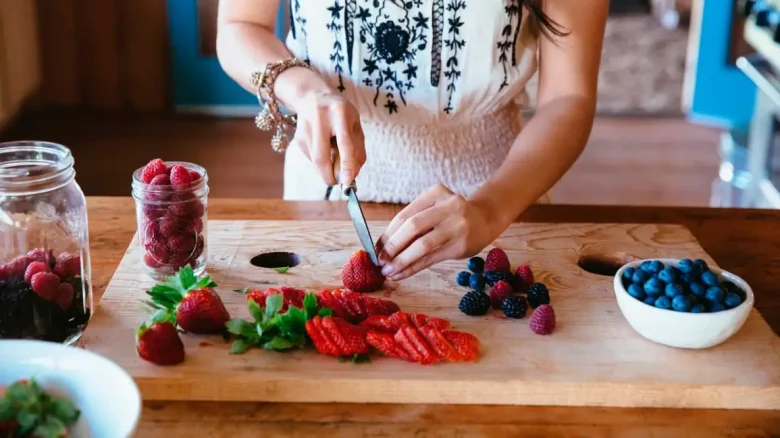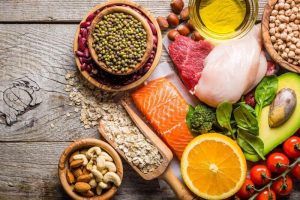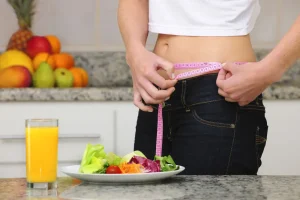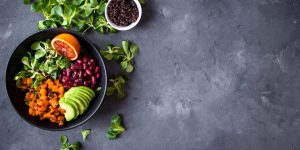Clean eating isn’t just a diet, it’s a lifestyle. It’s a lifestyle that focuses on eating whole, unprocessed foods. Starting a clean eating journey can be difficult for those who have never done it before, but with the right help, it can be an easy and fun way to improve your health and well-being. When you eat clean, you’re choosing foods that are as close to their original state as possible and staying away from foods with added chemicals or preservatives. This change is good for your body and can change the way you think about food. Here are five of our top tips for people who are just starting out on a clean eating journey.
Choose Whole Foods Over Processed Foods:
Focusing on whole foods over processed foods is what clean living is all about. Whole foods are foods that have not been altered in any way and are as close to their original form as possible. Fresh fruits and vegetables, whole grains, lean proteins, and healthy fats are all examples. Processed foods, on the other hand, often contain too many harmful ingredients, such as too much salt, sugar, and artificial ingredients, which can make it difficult to achieve your health goals. When you go grocery shopping, try to fill your shopping cart with fruits and vegetables, whole grains, and minimally processed proteins, such as fish or lean meat. Avoid ready-made meals that come in a variety of packages and have long ingredient lists. By focusing on whole foods, you are providing your body with the nutrients it needs and keeping you energized throughout the day.
Eat More Fruits and Vegetables:
Getting more fruits and vegetables every day is one of the easiest and most effective ways to improve your diet. This means that fruits and vegetables are nutrient-dense, meaning they contain lots of vitamins, minerals, and antioxidants, but not a lot of calories. Additionally, these foods contain large amounts of fiber, which is good for your digestive system and helps you feel fuller for longer. When your meals focus on fruits and vegetables, you are providing your body with the nutrients it needs to grow and stay healthy. Try to eat lots of fruits and vegetables of different colors. This is because different colors usually mean different types of healthy nutrients. You can also get the freshest food and a natural supply of nutrients by eating what is in season.
Reduce Your Intake of Refined Sugars and Carbohydrates:
Many processed foods contain large amounts of refined sugars and carbohydrates, which can be harmful to your health if consumed in excess. Foods such as beer, white bread, pastries, and sugary breakfast cereals can cause your blood sugar levels to spike, making you feel tired and leading to weight gain. If you want to live a clean life, you should eat less of these foods. Choose complex carbohydrates such as oats, quinoa, brown rice, and sweet potatoes. They digest more slowly and provide you with longer-lasting energy. If you have a sweet tooth, try eating vegetables or a small amount of raw honey. Your taste buds will get used to the new food, and you will not need as much refined sugar as before.
Drink Water to Stay Hydrated:
Water is an important part of clean eating. You should consider the quality of the foods and beverages you consume. Sugary beverages like soda, sweetened tea, and energy drinks can make it harder to eat clean because they add empty calories and sugar to your diet. Water, on the other hand, is necessary for your body to function properly and stay energized throughout the day. Your goal should be to drink more water and fewer sugary drinks. If you get tired of plain water, add fresh fruit, cucumber, or mint for flavor. If you want to try something new, herbal teas and coconut water are also good choices. Drinking enough water helps your body naturally cleanse, speeds up your metabolism, and aids in digestion.
Plan Ahead and Prepare Meals:
It’s easiest to stick to a clean eating plan when you plan ahead and prepare meals. It’s easy to give up on your goals if you don’t have a plan and turn to quick and easy prepared foods. Planning your meals and snacks for the week ahead will help you make healthy, clean choices every time. Planning your weekend meals ahead of time will give you more time during the week to stick to your clean eating plan. Make multiple meals at once so you can easily reheat them or take them with you on the go. Having healthy snacks like nuts, fresh fruit, and cut veggies on hand when you’re hungry can also help you resist the urge to eat something bad. The key to clean living is consistency, and being prepared can make a big difference in your success.
FAQs:
1. How to eat clean?
Clean eating means eating whole, minimally processed foods like fresh fruits and vegetables, lean proteins, and whole grains, and staying away from refined sugars, processed foods, and artificial ingredients.
2. Can I eat meat on a clean eating plan?
You can eat meat even if you’re following a clean eating plan. To avoid taking additional hormones and medications, choose lean meats like chicken or turkey and look for grass-fed or organic meats whenever possible.
3. Does clean eating cost a lot?
Clean eating doesn’t have to cost a lot of money if you buy whole foods like grains, fruits, and vegetables in bulk. Buying fresh foods and preparing your own meals can save you money.
4. How do I start eating clean if I’m used to eating prepared foods?
Start by slowly switching from processed foods to whole foods. Try adding more fruits, vegetables, and whole grains to your meals and gradually reduce your intake of processed foods and sugary drinks.
5. Do you need to eat clean to lose weight?
Yes, clean eating can help you lose weight because it focuses on eating low-calorie, nutrient-dense foods that will keep you feeling full without eating too much bad fat and refined sugar.




